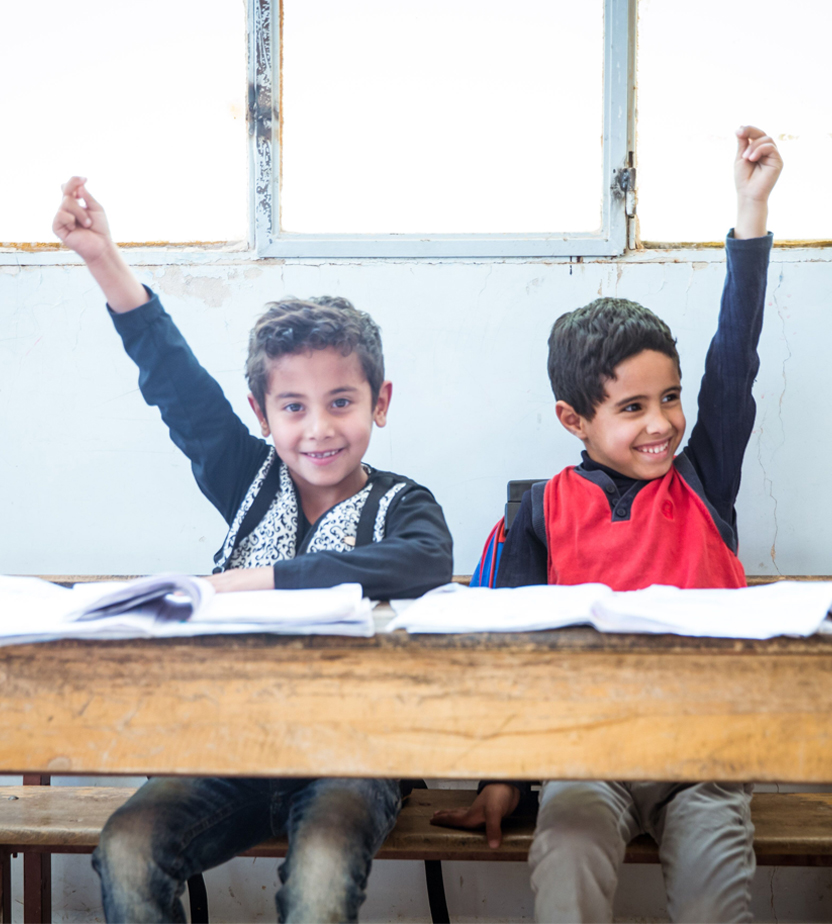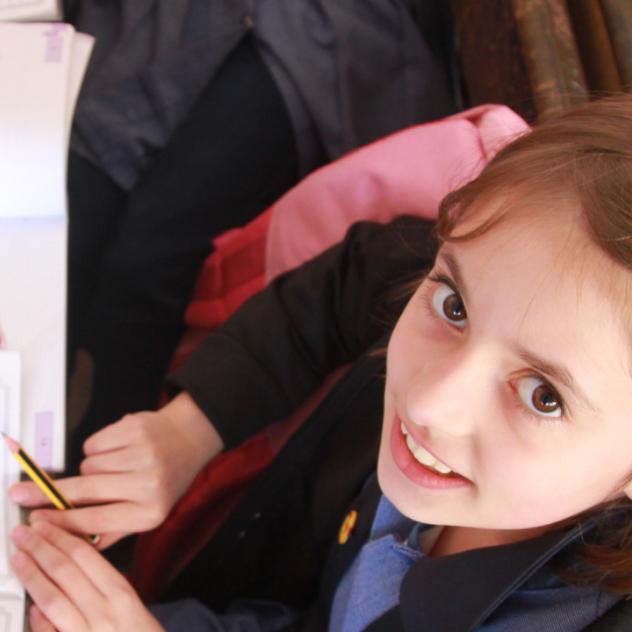Background
The Morphological Awareness pilot was implemented by the Queen Rania Foundation, in partnership with the Ministry of Education and the Queen Rania Teacher Academy. Its aim is to improve students’ Arabic language outcomes, mainly comprehension, through explicit instruction on Arabic morphemes.
Currently, in the Jordanian national curriculum for the early grades, morphemes are taught through pattern recognition and explicit rules are not explained to the students. This program trained teachers on how to make explicit reference to morphemes and how to teach their students morphological rules in language.
A randomized control trial was conducted in 20 schools -the pilot was only implemented in 10 of them - targeting 2nd to 5th-grade students over a period of one academic year.
Both treatment and control schools followed the national curriculum. However, treatment school teachers were given a teacher booklet that included new methods of teaching Arabic morphemes and instructions on the application of such approaches. Additionally, the students were supplied with booklets that included exercises on morphemes.
The pilot’s impact on students’ learning outcomes and attitudes towards the new method of learning were measured through baseline and endline assessments, in addition to satisfaction surveys.
Key Findings
Focus groups conducted by the Queen Rania Foundation following the conclusion of the pilot program, found that there was a significant positive shift in student learning attitudes. Teachers indicated that students exhibited an increase in class attendance and participation. Students were better prepared for the classes, showed more attentiveness and we more willing to work in teams.
Additionally, low-performing students became more likely to ask their teachers and other students for help while high-performing students became more comfortable with the idea of sharing their knowledge and guiding their fellow classmates.
Surveys showed that 90% of 2nd and 3rd grade students, as well as 71% and 65% of 4th and 5th grade students felt that their teachers are making Arabic classes more fun. There was also an 18 percentage point increase in the number of students who indicated that they always like participating in Arabic classes.
Overall, there was an improvement in student performance as indicated by assessments that were administered by the Queen Rania Foundation following the conclusion of the pilot program. Furthermore, 70% of the students reported that the morphemes pilot helped them learn Arabic and insights from the focus groups indicated that there was an improvement in students’ reading and comprehension skills, as well as their ability to form words and sentences.
Impact
Although the students and teachers indicated that they enjoyed and benefited from the pilot, the outcomes did not reflect significant learning gains. This could be due to several reasons, including the small sample size, selection bias, and the need to develop bespoke assessment tools. Further exploration and a more comprehensive evaluation of the influence of this pilot and how to better integrate it in the curriculum need to take place before this program can be considered for scale.

